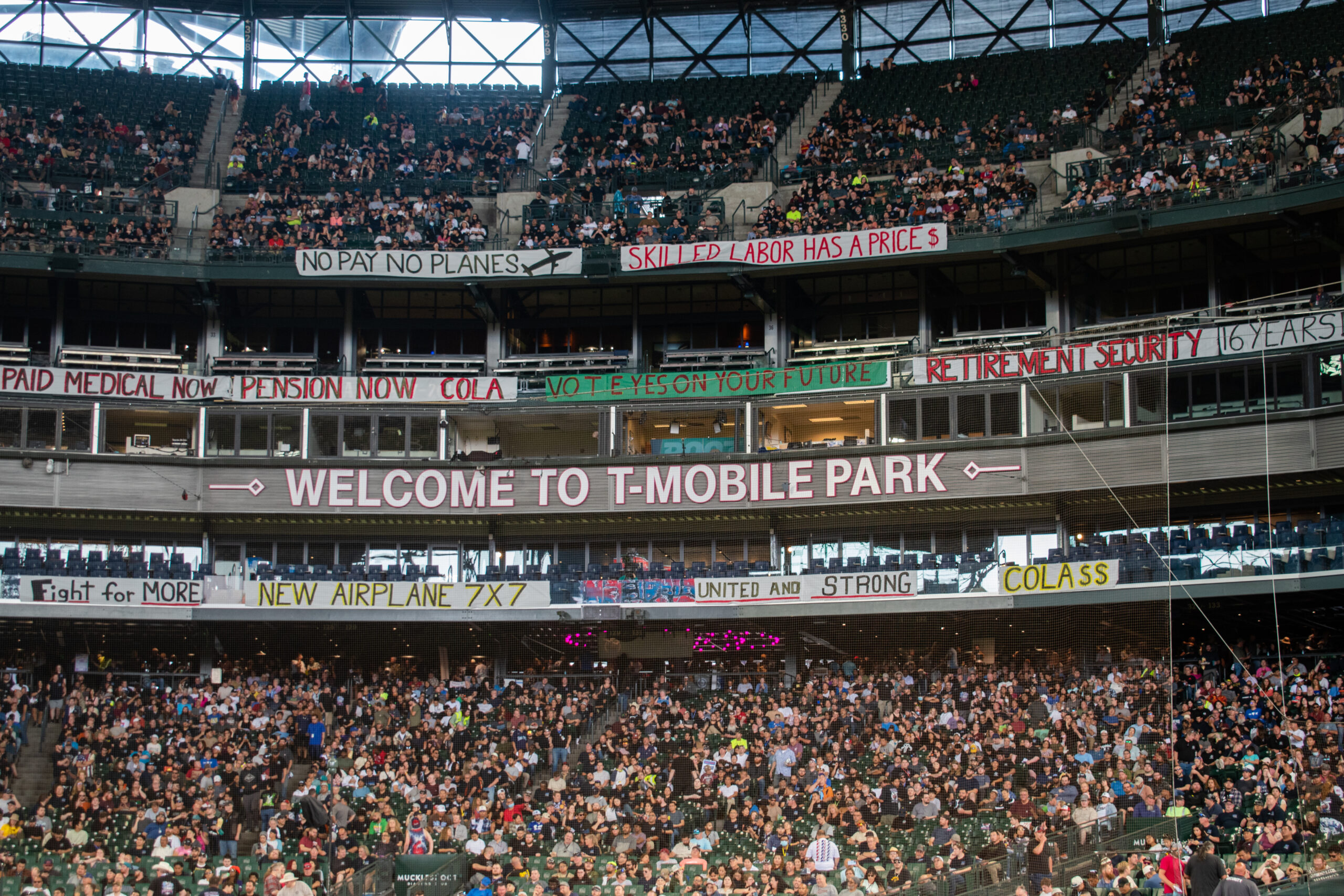New York — Boeing, a global aerospace giant already reeling from a series of crises, is on the brink of facing another significant challenge: a potential strike by 32,000 of its workers. The looming strike could further destabilize the company, which has been struggling with financial and operational setbacks over the past several years.
The contract between Boeing and the International Association of Machinists (IAM) is set to expire at 11:59 pm PT on September 12. If a new agreement is not reached, thousands of workers involved in assembling Boeing’s aircraft in Washington state are poised to initiate the first strike at the company in 16 years. According to union leaders, the negotiations are far from resolution.
“We remain significantly divided on key issues, including wages, healthcare, retirement benefits, and time off,” said Jon Holden, president of IAM District 751. “While we are committed to continuing negotiations, the process has been slow, and the gap between us remains wide.”
Boeing’s potential labor strike adds to a growing list of challenges the company has faced in recent years. The aerospace manufacturer has been beset by issues ranging from fatal crashes linked to its aircraft designs to accusations of prioritizing profit over safety. These problems have resulted in declining aircraft sales, legal troubles, and significant financial losses.
Both Boeing and the union have expressed a desire to avoid a strike, but union members’ dissatisfaction with past contract concessions makes reaching an agreement difficult. Many workers are determined to reclaim benefits they believe were unfairly forfeited in previous negotiations.
Boeing, meanwhile, insists that it is negotiating in good faith, striving to find a balance between meeting the needs of its employees and addressing the financial realities facing the company. “We are confident that a fair agreement can be reached that aligns with both our employees’ expectations and the challenges we face as a business,” Boeing said in a statement.
Holden, however, emphasized that any new contract must address the concessions made in the previous two contract extensions since 2008. During those negotiations, the union accepted less favorable terms, including higher health insurance costs and the elimination of traditional pension plans, to avoid job losses to non-union facilities.
Leadership Transition Complicates Talks
The ongoing contract negotiations are taking place under the leadership of Boeing’s new CEO, Kelly Ortberg, who took over on August 8. Ortberg has pledged to “reset” the company’s relationship with the union, meeting with union leaders during his first week in office. However, union officials report little change in Boeing’s stance during negotiations.
Ortberg’s predecessor, Dave Calhoun, had signaled a willingness to meet union demands to avoid a strike, acknowledging the need to invest in the workforce to maintain operations. “We understand that wage expectations are high,” Calhoun said in July. “We are committed to treating our employees well and will work diligently to avoid a work stoppage.”
Boeing has highlighted that IAM members’ wages have increased by 60% over the past decade due to general wage increases, cost-of-living adjustments, and incentive pay. Despite these increases, union members remain frustrated with the concessions made in earlier agreements and are pushing for improved benefits and job security.
“We cannot continue to face the threat of job loss every few years,” Holden asserted, emphasizing the union’s demand for more robust protections against outsourcing work to non-union facilities.
Broader Economic Impact
A strike at Boeing would have significant repercussions, not just for the company but for the broader economy. Boeing is a major player in the U.S. economy, employing nearly 150,000 people and contributing an estimated $79 billion to the economy. The company supports 1.6 million jobs directly and indirectly through its supply chain, which spans all 50 states and includes over 9,900 suppliers.
Moreover, Boeing is one of only two major suppliers of commercial aircraft to the global airline industry. A work stoppage could exacerbate existing delays in Boeing’s aircraft deliveries, further impacting an industry already dealing with supply chain disruptions.
Holden noted that while Boeing’s financial difficulties are well-known—citing $33.3 billion in core operating losses over the past five years—the union’s demands are both reasonable and necessary. The union believes that Boeing’s current struggles are the result of decisions to prioritize dividends and share buybacks over research and development.
“Our demands are fair, and Boeing’s financial troubles are due to their own decisions,” Holden said. “They haven’t claimed they can’t afford our proposals. We’re in this position because of their choices, not ours.”
One of the union’s objectives is to secure a seat on Boeing’s board of directors, ensuring that workers’ voices are heard in the company’s decision-making processes. The board has faced criticism for its handling of Boeing’s recent crises, and the union believes that having a representative on the board would help prevent future issues.
“The board has made decisions that have hurt the company,” Holden said. “We want to ensure that our concerns are considered, and that Boeing’s long-term success is prioritized.” As the September 12 deadline approaches, the stakes are high for both Boeing and its workforce. The outcome of these negotiations will not only impact the future of Boeing’s operations but also have broader implications for the U.S. economy and the global aerospace industry.






